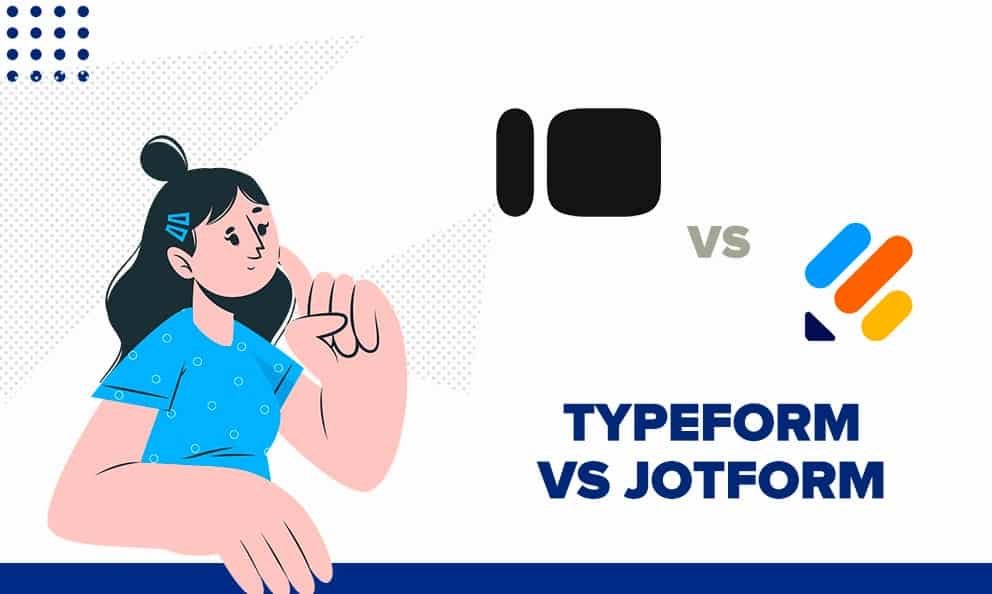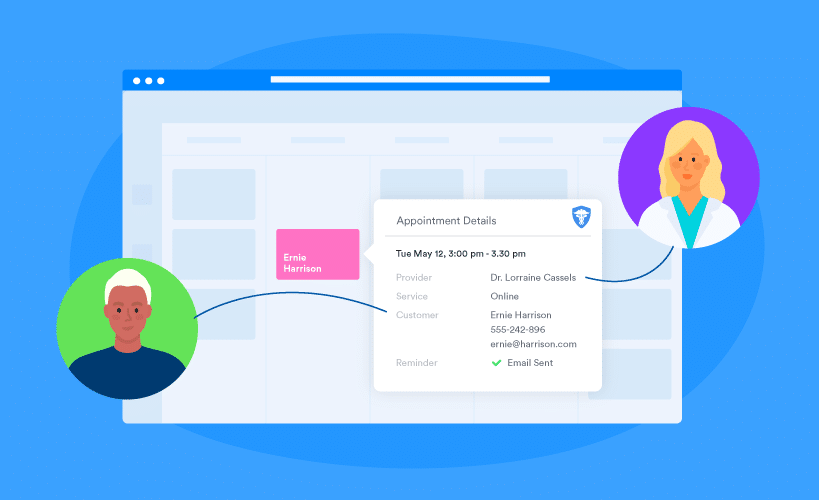Choosing the right business management software can be challenging. It’s crucial for your company’s success.
Every business has unique needs and goals. The perfect software aligns with these requirements, streamlining operations and boosting productivity. With countless options available, making the right choice can seem overwhelming. This guide will help you navigate the process. We’ll discuss key factors to consider, ensuring you find a solution that fits your business perfectly.
From understanding your needs to evaluating features and pricing, you’ll learn how to make an informed decision. Stay tuned to discover the steps to choose the best business management software for your company.
Evaluating Business Needs
Choosing the right business management software requires careful evaluation of your business needs. This step ensures that the software you select aligns perfectly with your company’s operations and goals. By identifying key requirements and assessing current systems, you can make an informed decision. Let’s dive into the specifics.
Identify Key Requirements
Start by listing your business needs. What tasks do you want the software to handle? This might include project management, inventory control, customer relations, or accounting. Create a detailed list. Don’t forget to involve key team members. They provide valuable insights into daily operations. Prioritize the features that are most critical to your workflow.
Assess Current Systems
Look at your current systems. Are they meeting your needs? Identify any gaps or inefficiencies. This helps you understand what new software must improve or replace. Consider the integration capabilities with your existing tools. This ensures a smooth transition. Evaluate user feedback and performance metrics. This information is crucial for choosing the right solution.
Budget Considerations
Choosing the right business management software involves many factors. One key factor is your budget. Understanding your budget is crucial for making the best choice for your business. Let’s break it down into manageable steps.
Determine Budget Limits
First, identify how much your business can spend. This will narrow down your options. List all your business expenses. Then, see what you can allocate for software. This step helps prevent overspending.
Also, consider future costs. Software often has ongoing fees. These can include subscription fees, updates, or customer support. Plan for these costs in your budget. Being aware of them now avoids surprises later.
Cost-benefit Analysis
Next, perform a cost-benefit analysis. This means comparing the software’s costs to its benefits. Look at both short-term and long-term benefits. Does the software save time? Increase productivity? Improve customer service? These are valuable benefits.
Write down these benefits. Then, compare them to the software’s total cost. This will help you see if the software is worth the investment. If the benefits outweigh the costs, the software is likely a good choice.
Software Features
Selecting the right business management software can streamline operations and improve productivity. Focus on user-friendly interfaces, customizable features, and reliable customer support. Evaluate the scalability to ensure it grows with your business.
Choosing the right business management software can be daunting. The key lies in understanding the software features that suit your business needs. Whether you are a startup or an established company, the right features can make a significant difference.Essential Features
When evaluating business management software, certain features are essential. These are the non-negotiables that your software must have. First, look for user-friendly interfaces. If the software is complicated, it will slow down your team rather than speeding things up. Another must-have is robust reporting and analytics. This feature helps you make informed decisions by providing insights into your business operations. Also, ensure the software offers seamless integration with other tools you use. For example, if you use accounting software, your business management tool should sync with it effortlessly.Advanced Capabilities
Beyond the basics, advanced capabilities can elevate your business operations. Automation is one such capability. Automating repetitive tasks can save you time and reduce errors. For example, automated invoicing can streamline your billing process. Customizability is another feature to look for. Every business is unique, and being able to tailor the software to your specific needs is invaluable. Imagine having dashboards that display the most relevant metrics for your business at a glance. Consider scalability as well. Your business will grow, and your software should grow with you. Whether it’s adding more users or expanding functionalities, scalable software adapts to your evolving needs. Are you investing in software that will still be relevant in five years? Advanced features ensure that your business management tool remains useful as your business evolves. So, what features are you prioritizing for your business management software?User-friendliness
User-friendliness is crucial for business management software. Ensure the software has an intuitive interface and easy navigation for all users.
Choosing the right business management software is crucial for your company’s success. One of the key factors to consider is User-Friendliness. If your team can’t easily navigate the software, they’ll waste valuable time and get frustrated. Let’s break this down further.Ease Of Use
User-friendliness starts with ease of use. Your team needs software that’s intuitive and simple to navigate. Imagine using software where you can’t easily find the features you need. It slows down your work and creates unnecessary stress. Look for software with a clean interface. Icons and menus should be clearly labeled. You shouldn’t need a manual to figure out how to perform basic tasks. I’ve seen companies switch from complex systems to more user-friendly ones and witness immediate productivity boosts. Is your current software causing headaches? Maybe it’s time for a change.Training And Support
Even the most user-friendly software will require some training. Check if the software provider offers comprehensive training materials. Webinars, tutorials, and documentation can make a big difference. Support is equally important. When issues arise, prompt and helpful support can save the day. Ensure the provider offers multiple support channels, like chat, email, and phone. Once, I had an issue with a software feature and got stuck. Thankfully, a quick chat with support resolved it in minutes. Have you ever been stuck with no one to help? It’s frustrating and can halt your work. Choosing software that’s easy to use and backed by solid training and support ensures your team remains productive and happy. So, is your software user-friendly enough?Integration Capabilities
Choosing the right business management software involves many factors. One of the most important is integration capabilities. This ensures your new software works well with the tools you already use.
Compatibility With Existing Tools
First, check if the software is compatible with your current tools. Will it integrate with your email system? Can it sync with your accounting software? This compatibility will save you time and reduce errors. It also helps your team adapt quickly to the new system. You don’t want to end up with software that doesn’t talk to your other tools.
Future Expansion
Also, think about future growth. Your business will evolve, and your software should too. Check if the software can scale with your needs. Can it add new users easily? Does it support additional modules or features? This flexibility is key for long-term success. You want a system that grows with you, not one you outgrow.

Credit: www.vnmtsolutions.com
Vendor Reputation
Choosing the right business management software is crucial. One key factor is the vendor’s reputation. This ensures you pick a reliable and trustworthy software provider. A vendor’s reputation can give insights into their reliability, quality, and customer service.
Customer Reviews
Customer reviews are a valuable resource. They offer first-hand experiences from other users. Positive reviews can signal a dependable vendor. Negative reviews can highlight potential issues. Check multiple platforms for a balanced view.
Industry Standing
Industry standing reflects the vendor’s position in the market. A well-regarded vendor often has a solid track record. Industry awards and recognition can also be telling. This shows the vendor’s commitment to excellence. Consider vendors with strong industry standing for better peace of mind.
Scalability
Choosing the right business management software involves considering various factors. One of the most critical aspects is scalability. Scalability ensures that your software can grow with your business, adapting to increasing demands and complexity. This section will discuss two key elements of scalability: growth potential and adaptability.
Growth Potential
Your business will likely grow over time. Your software must support this growth. Look for software that can handle an increase in users. It should also manage more data without performance issues. Check if the vendor offers different plans. This allows you to upgrade as needed.
Scalable software should integrate with other tools. This helps streamline operations as your business expands. Avoid software that limits your growth. Choose one that aligns with your long-term goals.
Adaptability
Your business needs may change. The software should adapt to these changes. Look for customizable features. These allow you to modify the software based on your needs. Check if the software supports various industries. This ensures it can adapt to different business models.
Adaptable software should be easy to update. Regular updates ensure the software stays relevant. This is crucial as technology evolves. Choose software that can grow and change with your business.

Credit: qoblex.com
Security Measures
Choosing the right business management software requires careful consideration of security measures. Protecting your business data is crucial. A good software solution should ensure your sensitive information remains secure. This section focuses on key security aspects to consider.
Data Protection
Data protection is vital for any business. The software must offer strong encryption. This ensures your data is safe from hackers. Look for software that provides end-to-end encryption. This means data is encrypted during transmission and storage.
Another feature to consider is access control. Only authorized users should access sensitive data. The software should allow you to set user permissions. This helps prevent unauthorized access. Regular backups are also important. They ensure you can recover data if lost or corrupted.
Compliance Standards
Compliance standards are essential for legal and regulatory requirements. The software should comply with industry standards. This includes GDPR, HIPAA, and others. Check if the software meets these standards.
Compliance ensures your business avoids legal issues. It also builds trust with your customers. They know their data is handled responsibly. Regular updates are part of compliance. The software should update to meet new regulations. Ensure the software provider offers these updates.

Credit: heavyvehicleinspection.com
Frequently Asked Questions
How Do I Choose A Management Software?
To choose management software, identify your business needs. Research options, read reviews, and compare features. Ensure it integrates with existing tools. Test usability with a trial.
Which Software Is Best For Business Management?
The best software for business management includes options like Monday. com, Trello, and Zoho. These tools offer robust features for project management, CRM, and team collaboration.
How To Choose A Software For Your Business?
Identify business needs, budget, and goals. Research options, read reviews, and request demos. Ensure compatibility and support.
What Is The Best Software For Small Business Management?
The best software for small business management is QuickBooks. It offers accounting, invoicing, and expense tracking features. Other popular choices include Zoho Books and FreshBooks.
Conclusion
Choosing the right business management software boosts efficiency. Identify your needs first. Compare features and reviews. Ensure compatibility with your existing systems. Consider scalability for future growth. Test the software before committing. Evaluate customer support options. Budget wisely and look for hidden costs.
A good choice saves time and money. Make an informed decision for long-term success.





